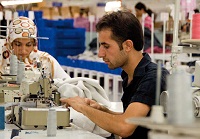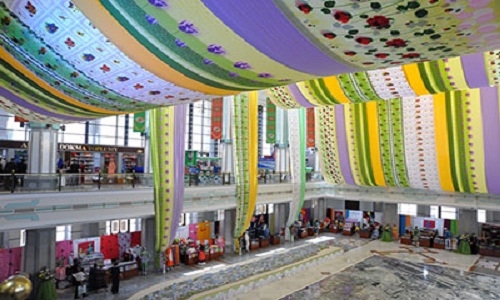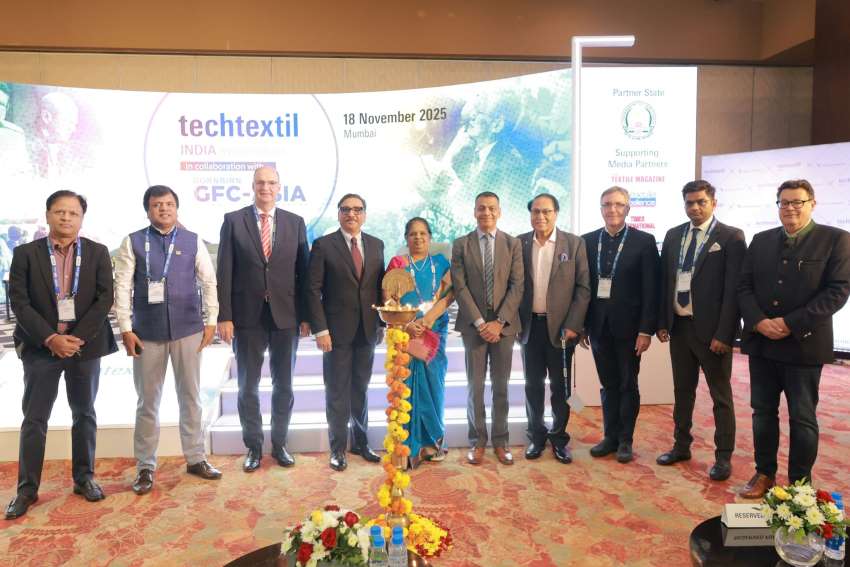"Contributing 7 per cent to the country’s GDP, and consisting of more than 55,000 textile and clothing companies that provide two million textile jobs, Turkish textile industry has come off age. In 2015, textiles and clothing products accounted for 19.2 per cent of Turkey’s total exports. With textile industry being largely cotton-based, Turkey is the world’s third-largest cotton importer, as domestic output is not sufficient to meet demand. Having said that, cotton production in Turkey is slated to rise by 15 per cent this year, growing to 425,000 hectares of planting area and 650,000 tonne of total cotton production."

Contributing 7 per cent to the country’s GDP, and consisting of more than 55,000 textile and clothing companies that provide two million textile jobs, Turkish textile industry has come off age. In 2015, textiles and clothing products accounted for 19.2 per cent of Turkey’s total exports. With textile industry being largely cotton-based, Turkey is the world’s third-largest cotton importer, as domestic output is not sufficient to meet demand. Having said that, cotton production in Turkey is slated to rise by 15 per cent this year, growing to 425,000 hectares of planting area and 650,000 tonne of total cotton production.
Global uncertainties a fear

The EU has now become Turkey’s top export partner with a share of 48.1 per cent of Turkish exports. However, the looming threat of Brexit may change that. Also, with Donald Trump as President of the US a lot is expected to change for Turkey’s textile industry but how exactly it will change remains uncertain. Many textile and fabric manufacturers in Turkey fear the Trump administration may place hefty tariffs on goods imported to the US from Turkey, but whether or not this will become reality remains unclear as of yet.
Meanwhile Turkey itself is facing upheaval and threats to public safety. In 2016, Turkey experienced multiple ISIS-related bombings and terrorist attacks, the most widely reported one being the attack on Istanbul’s Ataturk Airport in June 2016. This increase in terrorism is causing many Western clients and consumers to avoid doing business in Turkey. Turkey has lost its traditional markets in the region for its exports—Yemen, Iraq, and Syria—to civil war and other political and humanitarian crises.
Russia was once also a large market for Turkish textiles but Russia-Turkey relations have been on the decline since November 2015 when Turkey shot down a Russian jet; in retaliation Russia imposed economic sanctions on Turkey. Though the economic damage to the textile market—and numerous other markets—has already been done, the two countries have since worked together to try and rebuild their partnership.
Impact of Syrian crisis
Syria was once an important supplier of raw materials for Turkish textiles, but the Syrian crisis has drastically changed this. The economy and most industrial production markets in Syria have been decimated. The Islamic State now reportedly controls Syria’s cotton production and supply and Turkey officially refuses to accept imports of ISIL-controlled cotton. As Syria has traditionally been one of Turkey’s main suppliers of raw cotton, this is negatively impacting Turkey’s textile industry and forcing them to look for other ethical but high-priced sources of cotton.
Additionally, Turkey is now home to more than 2.5 million Syrian refugees. More than 660,000 school-age Syrian children in Turkey are not in school; a large percentage of these children are illegally working textile jobs in order to help provide for their families and make ends meet.
Positive steps towards improvement
Currently, Turkey does not recognise Syrian refugees as refugees; it instead puts them under ‘temporary protection’, which offers them more rights than traditional refugee status but for a shorter period of time. The Turkish government claims that it is taking steps towards better protecting Syrians in Turkey, particularly children, and are putting measures in place to punish companies that exploit unregistered or underage refugees for labour.
Turkey is also expected to increase its cotton production this year, which will put it on track to become less dependent on external sources of cotton, saving the textile and apparel industry both money and ethical dilemmas. Working to improve relations with Russia will also boost the textile industry.
The Turkish Government’s ‘Turquality’ programme is also expected to help boost the textile and apparel market in the country. The programme is intended to provide subsidies to companies and manufacturers in order to assist with marketing and strategic positioning of products.












